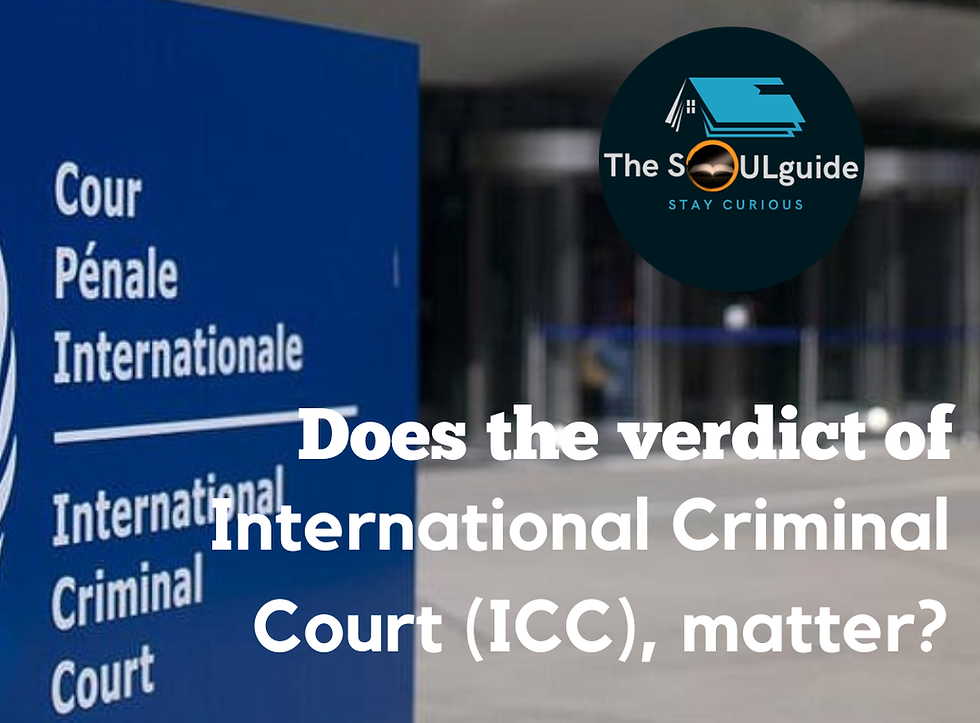Why Women Safety is still a Paradox?
- TheSoulGuide

- Aug 17, 2024
- 4 min read
Why women safety is not a priority and too casual for us? Why does it take for thousands to come on street to demand justice?
Any crime that takes place, must be thoroughly investigated without a doubt but why does it takes so many people to hold candle marches for justice to the victim of a RAPE?
This is nothing but a distrust towards the state, the government is seen as the nexus of people, the one who help criminals but takes vote from the common man. All this boils down to the fact? Why do we celebrate that festival of democracy called elections? When we don't trust the government ?
The protest that took place after the henious rape of a women doctor in R.G Kar Medical College and Hospital in Kolkata, West Bengal makes one wander, that we need to come on streets to tell the authorities, that we need to catch the rapists? This is such a shame. Let's try and take wider view of this issue.
The major reason of the protest is the issue of women safety, that people hit the street for protests. Women safety is the most important thing for any organization / country. How can one expect the equality or the growth of a country if one of the gender feels unsafe going on the streets, but what are the reasons for a women being unsafe?
Only the administrative statistics is not necessarily a good way of approaching the phenomenon of gender-specific violence in public places, as these statistics include only cases of violence reported to the police, leaving in shadow most of the aggressive behavior women undergo. Nor do they allow for integrating or separating out the effects of the diverse types of violence that is: physical (blows, slaps, etc.), sexual (groping, rape or attempted rape, etc.) and psychological (insults, remarks on physical features, being followed, etc). If we integrate into the analysis the various types of violence encompassed in the overall feeling of not being safe, and take into account the socio-gendered construction of fears, it becomes easier to understand what is concealed by this paradox.
If we analyze the high rate of fear stated by women in terms of gendered social relations, we see that this fear is far from natural or obvious. On the contrary, it reflects asymmetrical relations between the sexes. Once women’s fear is repositioned within these specific relations, it becomes clear that it requires more detailed study because of its apparent impact on women’s practices in public space.
If we go by statistics, we can't compare the countries with each other as the population size differs, laws differ and the judiciary differs. For example:
Some countries consider any non-consensual sex to be rape. Others classify a sexual assault as rape only when it exceeds a certain threshold of violence.
Some countries acknowledge spousal rape. Others do not.
Some countries count any report of rape. Others count only those incidents that proceed to a legal trial.
Similarly there are other wider differences as well.
According to the World Population review report, It is estimated that approximately 35% of women worldwide have experienced sexual harassment in their lifetime. However, in most countries with data available on rape (including the U.S.), fewer than 40% of those women seek help and fewer than 10% seek assistance from law enforcement.
However, the sad part is that every woman has a story. It doesn’t matter how extreme, every woman has felt unsafe at one point in their life.
What changes shall one have in the system ?
The biggest concern is the treatment given to the victim who goes to the police station to get complaint registered. After the crime happens the rapists should be the one whose life should become hell, but rather it is the victim whose life become worse. She has to come to court again and again and go through that trauma again, forget about the social pressure. The justice system is in such poor state that it has become an elephant, whom you can't ignore but it will go at its own pace, destroying the lives of innocent people because sometimes the Judgement comes after the victim has passed away living whole their life in trauma.
Some suggestions
Police Reforms and Support, they are the first ones whom the news of crime usually reaches and a well trained staff to handle such sensitive cases is must.
Reform the Fast tracks courts, which exists only in name.
Capacity training of Prosecutors, the lawyer of the victim is a government prosecutor who is as good as 'Seconds hand in a Clock'.
Strong implementation of the POSH and POSCO Acts.
Infrastructure to ensure the safety of women in public spaces, such as the CCTVs.
24/7 Helpline and Safety Apps with speedy response, which many governments have launched but to make it a people's campaign is very important.
Such small changes and reforms shall be done at societal level because there's no point in depending on others for your safety.
Concluding, TheSoulGUIDE feels the sorrow of all the women who has to go through such trauma. Hopefully change will come in society soon 🙏.
Get membership to feature your article. Check here.




Comentarios